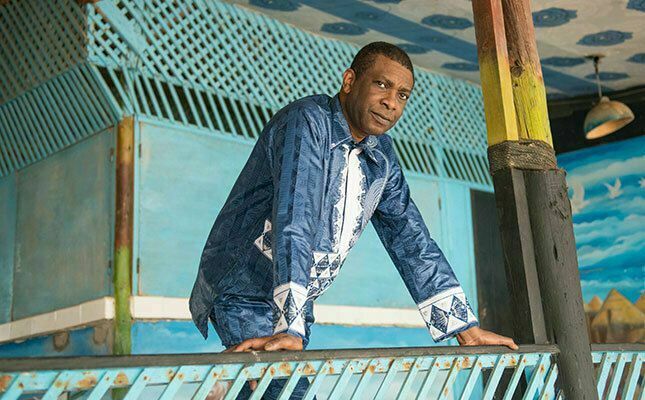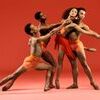Youssou NDOUR: Mbalax Unplugged At Spoleto Festival USA 2022
 Youssou NDOUR
Youssou NDOUR
Youssou NDOUR is, simply, one of the world’s greatest singers. Yet the West African star—a TIME 100 icon who first entered Americans’ ears through Peter Gabriel’s 1986 “In Your Eyes”—has always stayed close to his roots, with Senegalese traditions and griot storytelling as enduring hallmarks of his artistic personality.
To Spoleto, NDOUR brings an acoustic one-night-only performance comprising traditional melodies, mbalax rhythms, and never-before-heard compositions that speak to his range and daring innovation. Tickets will be available to the general public on Tuesday, February 22, at 10:00am EDT.
Senegalese singer, songwriter, and bandleader Youssou N'Dour (born 1959) is a leading proponent of World Music, combining traditional music from his homeland with Western popular culture, Cuban rhythms, and contemporary instrumentation.
N'Dour is among the most popular practitioners of a Senegalese form of music called mbalax, which features the heavy rhythms normally associated with the indigenous mbung mbung drum, kora harp, and balafon xylophone instead being performed by electric guitars and keyboards. Mbalax also employs the traditional Senegalese vocal methods of tassou and bakou; which, respectively, resemble Western rap and rhythm-and-blues vocal techniques. N'Dour helped pioneer mbalax in the 1970s with tremendous success in his homeland and brought the music to international popularity in the 1980s when he toured Europe and the United States as a solo performer and with such Western musical artists as Peter Gabriel, Paul Simon, Sting, and Bruce Springsteen. His efforts to introduce mbalax music to international audiences is assisted by a stunning vocal ability that has been put to good effect on N'Dour's own recordings and on popular recordings by such artists as Gabriel and Harry Belafonte.
Born in Dakar, N'Dour was immersed in Senegal's cross-pollination of indigenous music with European traditions. Frequented by Portuguese explorers and French colonialists since the seventeenth-century because of its central location on the continent and its Atlantic Ocean coastline, Senegal became the base for French operations on the African continent in the nineteenth century. As a result, Dakar became a center of commerce that attracted different Central African cultures as well. For example, N'Dour's father was from the Serer culture, and his mother was from a culture known as the Tukulor. However, N'Dour has stressed that he is a Wolof, a national Senegalese culture arising from a language originated in Dakar, which embraces many of Senegal's varied traditional and popular cultural forms.
N'dour was the eldest of eight children. His father was a garage mechanic and his mother was a well-known traditional praise singer or griot. Griots inherit their historical songs and stories from a griot family member of the previous generation and then teach it to the griot of the following generation. Senegalese griots perform at religious ceremonies and family celebrations, combining the distinct vocal phrasings of the Wolof and other Senegalese languages with the singing style of Central African Islamic traditions. After her marriage, however, a female griot violated local customs, and she abandoned public performances.
N'Dour's voice filled the void left by his mother. He began singing at religious ceremonies such as traditional circumcisions, and word of his talent spread until he received an invitation to join the local band Diamono. When he was sixteen, he became one of the chief vocalists for Dakar's most popular band, the Star Band. Formed by Ibra Kasse, the Star Band achieved its popularity by adapting Cuban and Latin American songs into Wolof.
In 1977, N'Dour formed Etoile de Dakar, featuring many of the younger musicians from the Star Band. The music performed by Etoile de Dakar was a polyglot of griot and Wolof regionalism, Senegalese nationalism, Third World rhythms, and urban teenage bravado. Tremendously successful, Etoile de Dakar ended when co-founders El Hadji Faye and Badou Ndiaye left the band. N'Dour rebounded by forming Super Etoile de Dakar and rose to prominence as Senegal's most revered performer.
Much of the music performed by Super Etoile de Dakar displays the influence of N'Dour's adherence to the Mourides belief system. Mourides, one of several Senegalese Islamic groups, adhere to the teachings of Cheikh Ahmadou Bamba, a nineteenth-century teacher of the Koran who encouraged his followers to spend their lives preparing for salvation in the afterlife rather than resorting to violence against economic, cultural, and military oppression perpetrated by their enemies. This salvation is attained by following the instructions of Mourides holy men, called marabouts. N'Dour's songs frequently contain spiritual messages that encourage listeners to obey the instructions of Mourides's marabouts.
While sometimes spiritual, mbalax music also is a highly energetic music that marries Cuban and Latin American styles, and, as John Cho explained: "Melismatic upper-register vocals of Islamic muezzins with the accompanying Arabic modalities were introduced, resulting in a fresh harmonic mix." Mbalax features such percussive instruments as sabars (bass drums), djembes (drums with goatskin heads), and tamas, also known as talking drums. Cho noted: "The rapid-fire dialog between the singer and the tama player is often the climax of a song. … Mbalax also spawned its own high-stepping, high-energy dance called the ventilateur, which raised a ruckus among the pious because of the provocative manner in which the women hiked their boubous and flashed their forbidden legs."
Audience members will be required to show proof of full COVID-19 vaccination—including booster shots for those who are eligible—for entry to all Spoleto Festival USA performances. Masks will be required for all indoor performances. Price range: $45 – $75
Please support The Coastal Chronicles by subscribing today!
You may also like:







